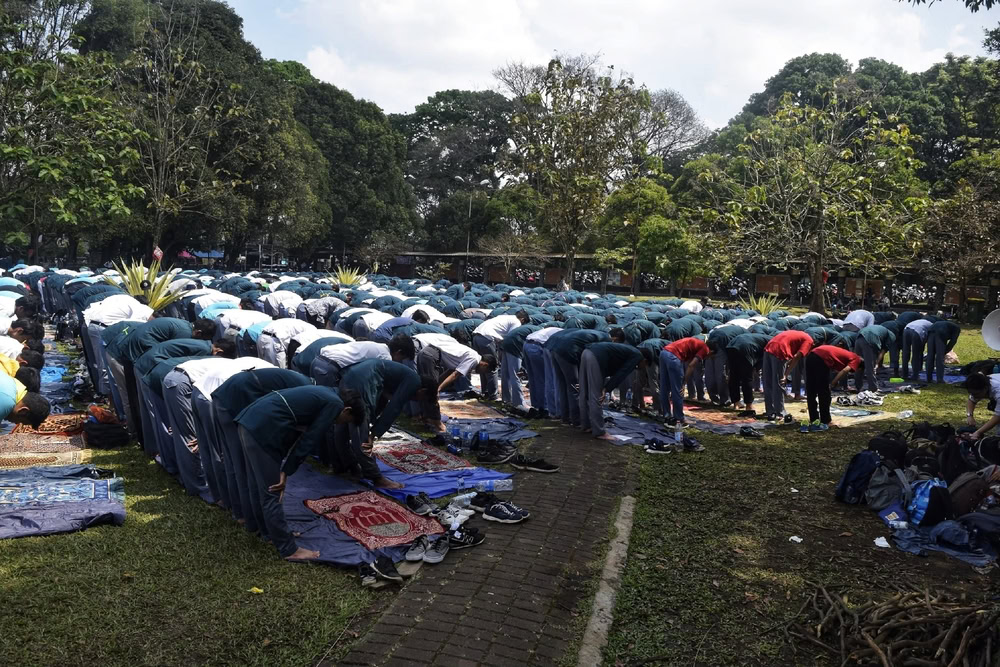Can We Leave the Congregation If the Imam Prolongs the Prayer?
Shafi'i Fiqh
Answered By Shaykh Dr. Muhammad Fayez Awad
Question
If the imam prolongs the prayer, is it permissible for me to intend to separate from the congregation and leave? What should I do?
Answer
All praise is due to Allah, Lord of the worlds. Blessings and peace be upon the Messenger of Allah, his Family, and his Companions.
The immense reward and virtue of congregational prayer are widely recognized. Many Quranic verses and hadiths emphasize and encourage Muslims to uphold it. ‘Abdullah Ibn ‘Umar narrated that the Messenger of Allah (Allah bless him and give him peace) said:
“The prayer in congregation is twenty-seven times superior to the prayer offered by a person alone.” [Bukhari; Muslim]
Therefore, a Muslim should not abandon it or leave the congregation and separate from the imam for trivial reasons. Allah (Most High) says:
“O believers! Obey Allah and obey the Messenger, and do not let your deeds be in vain.” [Quran, 47:33]
Ruling on Separation in Congregational Prayer
Separating from the imam can be disliked, permissible, or necessary:
Disliked
It is disliked to leave the congregation without a valid excuse while the prayer remains valid. The Shafi‘i scholars deduced the validity of the follower’s prayer after leaving the congregation from the fact that congregational prayer is either a sunna (recommended), which does not become obligatory once started (except in Hajj and Umra), or a communal obligation (fard kifaya), which is the stronger opinion, and the same rule applies.
Permissible
According to the Shafi‘is, it is permissible for a follower to separate from the congregation and pray alone if there is an excuse, such as intolerable prolongation.
In “Minhaj al-Talibin,” it is mentioned: “If the imam leaves his prayer, the following ends; if the follower leaves, it is permissible, and according to one opinion, it is not permissible except with an excuse that permits leaving the congregation, including the prolongation of the imam.” The commentator explains the excuse: “The follower cannot bear the prolongation due to weakness or being busy, as narrated in the story of Mu‘adh.” [Nawawi, Minhaj al-Talibin; Shirbini, Mughni al-Muhtaj]
What is the story of Mu‘adh?
Jabir Ibn ‘Abdullah narrated: “Mu‘adh used to pray with the Messenger of Allah (Allah bless him and give him peace), then return to lead his people in prayer. One night, the Messenger of Allah (Allah bless him and give him peace) delayed the ‘Isha prayer, and Mu‘adh returned to lead his people and began with Surat al-Baqara. A man separated and prayed alone. When people told him, ‘You have become a hypocrite,’ he said, ‘I am not a hypocrite, but I will inform the Messenger of Allah (Allah bless him and give him peace).’ He went to the Prophet (Allah bless him and give him peace) and told him what happened. The Prophet (Allah bless him and give him peace) said, ‘Are you a troublemaker, Mu‘adh? Recite such-and-such sura.’” [Ibn Khuzayma]
In another narration, it says: “Why didn’t you pray with ‘Glorify the Name of your Lord (Surat al-‘Ala),’ ‘By the sun and its brightness (Surat al-Shams),’ ‘By the night when it covers (Surat al-Layl),’ because behind you are the elderly, the weak, and those with needs.” [Bukhari; Muslim]
Necessary
It becomes necessary to separate when the imam lacks a condition for valid prayer. [Shirbini, Mughni al-Muhtaj]
Such as facing away from the qibla, or if the imam’s prayer becomes invalid due to seeing impurity on his clothes or body or realizing he is in a state of impurity. The follower must separate and complete the prayer alone based on what they prayed with the imam. [Nawawi, Rawdat al-Talibin]
Hence, the imam must consider the condition of the followers, just as the followers must maintain their worship.
May Allah guide us to what He loves and is pleased with.
[Shaykh] Dr. Muhammad Fayez Awad
Shaykh Dr. Muhammad Fayez Awad, born in Damascus, Syria, in 1965, pursued his Islamic studies in the mosques and institutes of Damascus. A graduate of the Islamic University of Medina in 1985, he holds a Ph.D. in Islamic Studies from Bahauddin Zakariya University in Pakistan.
He has extensive experience developing curricula and enhancing the teaching of various academic courses, including conducting intensive courses. Shaykh Awad has taught Fiqh, Usul al-Fiqh, Quranic sciences, the history of legislation, inheritance laws, and more at several institutes and universities such as Al-Furqan Institute for Islamic Sciences and Majma‘ al-Fath al-Islami in Damascus.
He is a lecturer at the Sultan Muhammad al-Fatih Waqf University in Istanbul, teaching various Arabic and Islamic subjects, and teaches at numerous Islamic institutes in Istanbul. Shaykh Awad is a member of the Association of Syrian Scholars, a founding member of the Zayd bin Thabit Foundation, a member of the Syrian Scholars Association, and a member of the Academic Council at the Iman Center for Teaching the Sunna and Quran.
Among his teachers from whom he received Ijazat are his father, Shaykh Muhammad Muhiyiddin Awad, Shaykh Muhiyiddin al-Kurdi, Shaykh Muhammad Karim Rajih, Shaykh Usama al-Rifai, Shaykh Ayman Suwaid, Shaykh Ahmad al-Qalash, Shaykh Muhammad Awwama, and Shaykh Mamduh Junayd.
